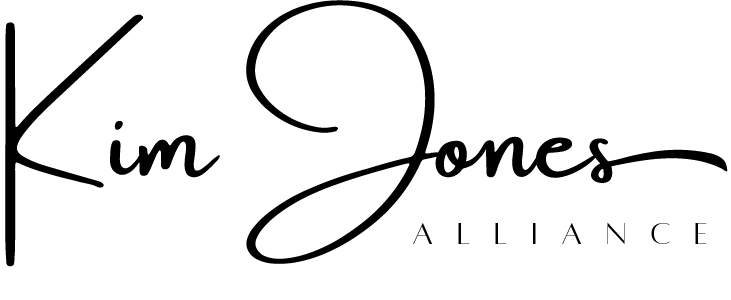The 5 Keys to Successfully Changing Careers
If you’re thinking about changing careers, understanding the essential components required to do this well will increase your odds of successfully making it to the other side.

Thinking About Changing Careers?
If you’re thinking about changing careers, you should know that one of the biggest reasons people fail to do this successfully: They have an incorrect understanding of what making this kind of change actually entails.
Below, I share 5 little-known tips for navigating a successful career transformation. These are strategies I learned myself through completing my own career transition and helping dozens of women like you find their ways to new careers.
1. Changing careers requires committing to the creative process
Perhaps nothing we will do in our lifetimes requires more creativity than visualizing a new career path and then bringing it into form. In essence, you are striving to bring to life a new venture from scratch from a vision that at first only exists in your mind. This makes career change a significant act of creation. And embarking on any feat of creativity requires an understanding of the inner workings of the creative process so you can steer your way through it effectively.
The main point here is that being in a creative process is far from easy. Building the career of your dreams will bring you face-to-face with who you are underneath your conditioning and limiting stories faster than just about anything else. You will be confronted with the limiting beliefs that have kept you from playing as big as your dreams require of you. You will face internal resistance, self-doubt, and negative self-talk. Unfortunately, these are typical byproducts that come with venturing into new territory.
Mitchell Rigie, the founder of the Creative Breakthrough Lab, describes those who walk the creative path as being those among us who are most familiar with the human condition. They know that the creative process is characterized by living with both their biggest fears and their deepest brilliance, as they endeavor to manifest their inner thoughts into the physical world.
Walking this path requires a huge act of courage as you confront difficult truths about what you believe about your worth, your ability to live the way you want to, and your capabilities. Therefore, if you’re looking to bring your most epic career to life, be prepared to travel the path that only the courageous few take. This requires learning to work alongside your fears and limiting stories, as well as your genius, as you enter into unknown territory to create what you most desire for yourself.

2. Changing professions requires you to become a novice again
By the time we first think about changing professions, many of us will have become experts in our current field. We’re happy that the days of hustling to build our careers are behind us. We remember what it was like to fight for every opportunity we got, to feel inexperienced and in over our heads. A novice. Those early days weren’t fun for most of us. And we certainly wouldn’t go back there if we had the choice.
Brené Brown has an apt term to describe the dynamic of being new at something. She calls it the FFT (F*king First Time), or the PG version, the TFT (Terrible First Time). The FFT is territory that’s familiar to all of us. It’s when we’re on a learning curve and we need help climbing it. We wonder if we’re good enough to do what we most want and whether we’ll ever cut it. Being in the FFT can make us feel extremely uncomfortable and vulnerable.
If you’re transforming your career into a new venture with which you have little or no experience, it can feel like you’re starting all over again, even though you’ll be bringing all your past experiences to it. The fears that come up when considering the implications of taking such a risk are enough to make most people turn back and stay right where they are, where it’s safe, even if staying safe is making them miserable.
That said, being aware that changing careers will require you to traverse the FFT one more time can help you know what to expect and prepare for the challenges ahead.
And besides, it’s not like you haven’t been here before. You now have a lot more skills for successfully navigating this difficult place than you did when you were first starting out. It’s important to keep that in mind as you move forward.
3. Changing careers requires you to tame your inner critic
Sheri Salata, the ex-executive producer of the Oprah Winfrey show turned entrepreneur, was recently asked what the most important ingredient is for preparing for a big life transformation. She answered that we need to completely overhaul our self-talk, before she went on to say that most of us aren’t even aware of just how vicious we are when talking to ourselves. In other words, our inner critic will become our biggest obstacle to stepping into the life we want, if we don’t learn how to manage it.
Test this for yourself. See what you tell yourself when you think about embarking on your career transformation. If you’re like me, I’ll bet it’s some version of the following:
- “Everyone will think you’re crazy if you throw away the career you’ve invested so much in.”
- “Who are you to think you can do what you really want to do?”
- “You’ll never pull it off, you’re too…” (fill in the blank: too old, too young, too inexperienced, too unmotivated, etc.)
This kind of internal self-talk will kill your dream before you even get it off the ground. So, if you want a fighting chance to bring your dream career to life, you’ll need to work on taming your inner critic by replacing your negative self-talk with supportive narratives; narratives that encourage you on your journey.
4. Changing careers requires you to rethink your professional identity
Here’s one surprising yet extremely common reason why so many professional women fail to embark on their desired career transformation: They’ve come to identify with their careers to such a degree that they wonder who they’ll be and what they may lose without it. They’ve invested a disproportionate amount of their lives into developing a professional persona that has led to so many benefits they’ve worked their whole lives to achieve. And, without their hard-earned career identities, they fear they’ll be walking away from the things in their lives they value most.
Because of this, work becomes so much more than livelihood. It’s a big part of how these women see and value themselves, and how they think others see and value them. Therefore, when embarking on a career transformation, you’ll need to assess how much you’ve coupled your sense of worth with your professional identity.
If there’s a strong association, you’ll want to spend time thinking about redefining your identity in line with who you are separate from your career. It can be helpful to think about the traits that make you, you. Be sure to include your courage for embarking on a big life transformation like changing careers. Some great temporary transitional identities to consider embracing while you’re building your new career include seeker, trailblazer, or just plain badass.
5. Changing careers requires a strong support network
One of the main reasons career transformations get derailed is that many women attempt to go it alone. The lack of having a strong network of resources to support you in making your desired change can make the journey much more difficult than it needs to be. Examples of what you’ll want in your support network include:
- The support of loved ones
- The time and space to explore a new path
- The financial resources to transition to a new venture
- The input of experts who will guide you along your way
The best way to proceed is to begin to build the support you need in each of these key areas. That may include talking to your family and loved ones about what you want to do with your career so you can get them on board. It may also include listening to and addressing any concerns they have when considering the impacts of change.
Building your support system also includes thinking through how you’ll create the time and space needed to explore your new path. This may involve assessing your current work obligations to determine what can be reprioritized. You may need to talk to your boss about carving out time to attend to a personal priority. And, it’s important to develop a schedule of time that you’ll dedicate to your venture. This will allow you to build the discipline and momentum to chart a new course.
Next, make sure you think through the financial requirements needed to transition to a new career. Will you be creating your new venture on the side, or will you be scaling back your day job? Will there be less income coming in as a result? Do you require a financial outlay to invest in the skills and expertise required for your new venture? Will you be starting your own business, which may require capital investments?
Finally, make sure you surround yourself with the experts that will support you on your path. These can include people who’ve walked the path of transformation before you and can serve as guides as you make your own way. They can include coaches, therapists, and mentors who can help you work through the internal and external changes necessary to step into a new career. It can include attending career workshops, seminars, and masterminds where you’ll be connected with the experts in the field you’re moving into.
As you think about changing careers, it’s critical to keep in mind that undertaking a career transformation can be one of the most rewarding yet challenging endeavors you’ll undertake in your lifetime. The journey is made doubly hard when you have an incomplete understanding of the key ingredients required to make it through successfully. Engaging with a career transformation coach can help you build these components to maximize your chance for success.
If you’re ready to get started on building a path to a career you love, I’d love to support you with your journey. If you’d like to learn more about what that would look like, click here to get in touch.
Don't miss the latest:
Yes, You CAN Transform Your Career! Here’s How.
Tips & Strategies for Making a Career Change
Thinking About Leaving Your Career in Tech?

Hi, I’m Kim!
I’m a Certified Life & Career Coach, and business entrepreneur.
My passion is empowering women to build thriving careers centered on freedom and empowerment.



